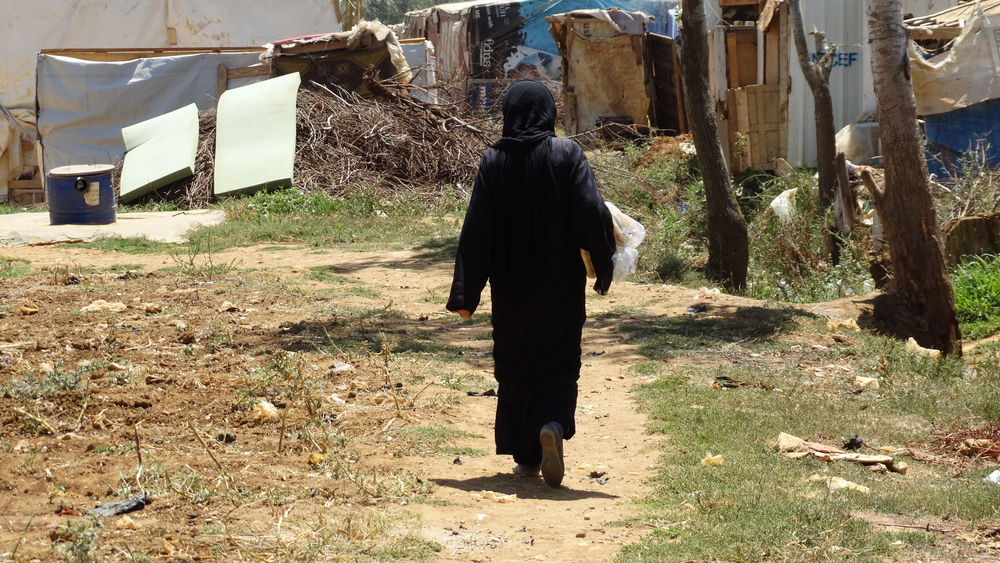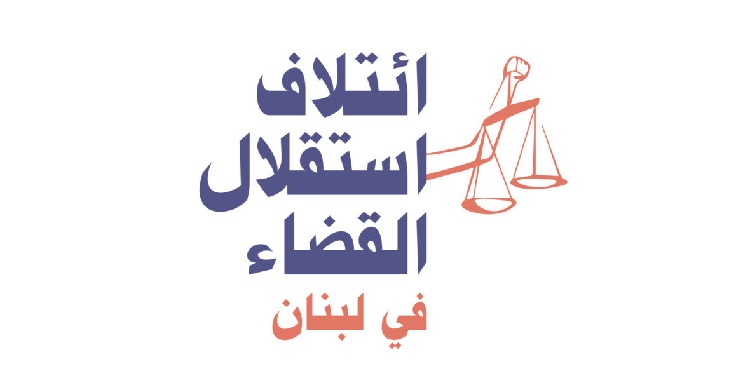Joint Statement: Lebanon must end practices of refoulement and torture

25 June 2024
On the occasions of World Day for Refugees on June 20th and the International Day in Support of Victims of Torture on June 26th, the undersigned organizations urge the Lebanese authorities to respect their international obligations and ensure that all instances of torture and ill-treatment are effectively investigated and that unlawful deportations of Syrian refugees are immediately halted.
The Situation of Syrian Refugees:
In recent years, the Lebanese authorities have subjected Syrian refugees in the country to increasingly coercive measures, including arbitrary arrests, forced evictions, and summary deportations. These arbitrary and restrictive measures against Syrian refugees have been accompanied by hateful rhetoric and misinformation propagated by government officials and media entities, fueling tensions between the Lebanese host community and Syrian refugees.
This year has been particularly wrought for Syrian refugees in Lebanon, especially since April 7, 2024, when Lebanese Forces party coordinator, Pascal Sleiman, was killed and his body found in Homs Syria; several Syrians were arrested as suspects in the case. Syrian refugees in Lebanon faced backlash and retaliation for the killing, with several municipalities implementing discriminatory curfews, prohibiting Syrians from leaving their homes during the days that followed. On April 17, security agencies began implementing an order from the Governor of North Lebanon to evict all Syrians residing in the North Lebanon governorate who do not have legal residency, without providing them with alternative housing. On May 2, Interior Minister Bassam Mawlawi requested that all municipalities deny rental contracts to Syrians who do not have legal residency in the country. On May 8, the Lebanese General Security announced sweeping new measures against Syrians, including additional restrictions on their ability to obtain residency permits and work in the country, and stepped up raids, collective evictions, arrests, and forced deportations. This despite the fact that Lebanon has severely restricted the avenues available to Syrian refugees to obtain legal residency, and as of the latest VASyR report for 2023, only 19.7% of Syrians in Lebanon had legal residency.
According to Legal Agenda, in 2024, the Lebanese Armed Forces (LAF) has so far deported to Syria and pushed back more than 1,400 Syrians to Syria, and the General Security deported more than 300. In 2023, the LAF deported and pushed back more than 13,000 Syrians. Deportations have often been conducted summarily, without judicial orders and without providing refugees with the opportunity to argue their case for protection, or challenge the deportation orders.
Reports by the UN, European Union, as well as human rights organizations, including Amnesty International, have all concluded that Syria remains unsafe for return and refugees are at risk of human rights violations upon return, including arbitrary detention, torture and other ill-treatment, enforced disappearance, and persecution. In some cases, returnees have faced persecution and torture simply for being displaced in Lebanon during the conflict, as Syrian authorities tend to view those who fled the armed conflict with suspicion. In recent months, Syria has also experienced the worst escalation in violence since 2020.
In at least one case documented by the Cedar Centre for Legal Studies, a Syrian army defector, Rafaat al Faleh, was arrested at an army checkpoint in Lebanon, detained and forcibly deported back to Syria in January 2024 despite being registered with the United Nations Refugee Agency (UNHCR). He is currently detained in Sednaya prison in Syria, a prison notorious for its widespread use of torture and other ill-treatment. In March, two Syrian opposition members were reportedly deported to Syria and handed over to the Syrian authorities. This led four of their relatives, who are imprisoned in Lebanon, to attempt suicide for fear of also being deported, according to Lebanese media.
On May 2, the European Commission announced that it would provide Lebanon with an assistance package of $1 billion over the course of 3 years (2024-2027), with the main goal of the assistance being to support migration governance, especially in terms of securing borders and preventing irregular exit and entry from Lebanon. This is the latest in a series of migration cooperation deals negotiated by the European Union (EU) that seeks to enlist third countries’ assistance on border control and that are premised on the abdication of responsibility for people seeking safety. These deals expose individuals to risks of violation of their human rights, erode asylum protection and undermine the international protection system as a whole. These agreements evade public, parliamentary, and judicial oversight in the EU and partner countries and consistently lack adequate monitoring and oversight mechanisms to ensure the EU is not complicit in human rights violations. Meanwhile, in 2023, only 2,800 Syrians were resettled to the EU from Lebanon, which amounts to a mere 1% of the overall number of Syrians living in the country who were in need of resettlement.
Despite the announcement of this assistance package, on May 15th, Lebanese parliament agreed to form a ministerial committee to come up with a coordinated return plan to be implemented in coordination with the Syrian regime.
Forcibly returning refugees to a place where they are at risk of persecution and torture violates the principle of non-refoulement enshrined in the UN Convention Against Torture (CAT), which Lebanon is a party to, as well as the prohibition on expelling refugees to face the persecution they have fled.
Torture and other Ill-treatment:
Despite Lebanon passing Law No. 65 in 2017, known as the Anti-Torture Law, and amending Article 47 of the Code of Criminal Procedure guaranteeing the right to a lawyer during interrogations, torture and other ill-treatment remain prevalent in places of detention, and impunity for such acts is widespread.
The Anti-Torture Law criminalizes torture but falls short of fulfilling Lebanon’s obligations under the CAT. Most tellingly, it sets a statute of limitations for prosecuting torture of between 3 and 10 years after the victim’s release from detention or custody. Under international law, there should be no statute of limitations for prosecuting torture. Further, the law fails to criminalize other ill-treatment, meaning cruel, inhuman, and degrading treatment or punishment, and limits the definition of torture to situations of investigation, interrogation, judicial investigation, trial and punishment. Although the law’s preamble specifies that torture cases should be heard by regular judicial courts, this is not reflected in the operational text, leaving open the possibility of military courts hearing these cases. Lebanon’s military courts are not independent and fail to comply with international fair trial standards.
Since the law’s adoption in 2017, the authorities have only prosecuted one case of torture through a military court. The case concerned Bashar Abed ِAl Saud, a Syrian refugee who died on August 31, 2022, one day after the State Security agency arrested and tortured him, in the State Security branch in Tebnin, southern Lebanon. On November 29, 2022, a military investigative judge issued an indictment on torture charges against 5 members of State Security, including a medium-ranking officer. The judge referred the case to a military court, arguing that the military judiciary had jurisdiction over the case. The court subsequently ordered the release of all 5 defendants and the trial continues with the next hearing scheduled in July 2024. In another shocking incident, a Syrian man was detained by Lebanese military intelligence while participating in a feminist protest for Gaza. During his brief detention, he was allegedly subjected to torture, including beatings with electric cables. He confessed under torture of belonging to a terrorist organization, and was released later that day. A forensic medical exam conducted on that same day, reviewed by Human Rights Watch, shows that he had bruises and marks on his neck, shoulder, arms, chest, and hands, resulting from “being beaten or hit … with a hard, cable-shaped object.”
While Syrians and other vulnerable groups have been subjected to torture and other ill-treatment, Lebanese nationals have also been victims of this crime. Rabih Fadel Zakaria served in the Lebanese Army for over 18.5 years as a low-ranking officer. Zakaria reported that he was tortured by the Mount Lebanon Military Police on August 31, 2022, after he reported to his superiors an incident of counterfeit money exchange with his colleague. Despite documenting his injuries through a forensic report issued at the Military Hospital, no action was taken. On November 12, 2023, he was dismissed from the army without compensation after 18.5 years of service. He filed a complaint regarding his torture on April 4, 2024. He was subsequently arrested on May 21, 2024, based on accusations related to “promoting counterfeit money”. During his interrogation, the investigating judge showed him the torture complaint that was filed; which may indicate that the accusations against him came as a retaliation for filing the torture complaint.
The Lebanese authorities have failed to empower the institutions set up to investigate torture and other ill-treatment, as mandated by the Optional Protocol to the CAT, to which Lebanon is a party. Despite parliament passing a law in October 2016 to establish a National Human Rights Commission, including a National Preventative Mechanism against Torture (NPM), the members were appointed nearly three years later, in July 2019. To date, the government has not allocated a sufficient budget for the NPM to enable it to fulfill its mandate.
Recommendations:
- With respect to Refugees:
- Lebanon must immediately halt the forcible and summary deportations of Syrian refugees back to Syria, where they face credible risks of persecution, torture and other ill-treatment, and other human rights abuses. In accordance with international standards of due process, individuals subjected to deportation orders should be granted the opportunity to challenge these orders before the courts.
- The Lebanese government must adhere to its previous commitment to allow refugees registered with UNHCR in Lebanon to be considered to have legal residency in the territory. It must also create transparent, accessible and affordable pathways for Syrian refugees to regularize their status and apply these regulations without discrimination.
- Lebanese authorities and politicians must refrain from disseminating misinformation or hate speech about Syrian refugees, which is causing increased tensions between refugees and the Lebanese host community. They must also protect Syrian refugees against abuses or violence whether conducted by state agents or any other group or individual, in accordance with Lebanon’s obligations under the Convention for the Elimination of All Forms of Racial Discrimination.
- Lebanon’s partners, particularly the EU and its member states, should ensure that any funds pledged to support Syrian refugees in Lebanon do not contribute to human rights abuses, including torture, and forcible deportations to Syria. They must also immediately stop unlawful pushbacks of migrants who reach their shores from Lebanon and commit to increasing their resettlement quotas.
- With respect to Victims of Torture:
- Ensure compliance with Article 47 of the Code of Criminal Procedure, particularly by guaranteeing access to legal representation and medical examinations for all persons arrested or detained during their preliminary interrogation by law enforcement agencies.
- Conduct prompt, independent, impartial, and effective investigations into complaints and reports of torture and other cruel, inhuman, or degrading treatment or punishment.
- Refer all cases of torture and other ill-treatment to the regular courts, as stipulated in Article 15 of the Code of Criminal Procedure, and uphold the right to an independent, fair, and transparent trial for all parties involved.
- Amend the Anti-Torture Law in alignment with Lebanon’s international obligations and the CAT.
- Issue the necessary governmental decrees and allocate a sufficient budget to allow the National Human Rights Commission, including its NPM, to fulfill its mandate.
- Submit Lebanon’s delayed second periodic report to the UN Committee against Torture, which has been pending since May 2021, and accept the long-pending request of the UN Special Rapporteur on Torture to visit Lebanon, initially requested in February 2017.
- Recognize the competence of the UN Committee against Torture to receive and consider individual complaints from victims, as stipulated in Article 22 of the CAT.
Signatories:
- Access Center for Human Rights (ACHR)
- Amnesty International
- Border Violence Monitoring Network (BVMN)
- Caesar Files for Justice (CF4J)
- Cedar Centre for Legal Studies (CCLS)
- European Lawyers for Democracy and Human Rights (ELDH)
- Frontliners for Change (FFC)
- HuMENA for Human Rights and Civic Engagement
- Juristes Démocrates de Suisses (JDS)
- Legal Agenda
- Legal Centre Lesvos (LCL)
- Lokman Slim Foundation
- MENA Prison Forum
- MENA Rights Group (MRG)
- Progressive Lawyers Association (Çağdaş Hukukçular Derneği, ÇHD)
- Tahrir Institute for Middle East Policy (TIMEP)
- The Anti Racism Movement (ARM)
- The Palestinian Human Rights Organization (PHRO)
- UMAM Documentation & Research
- Witnesses for Justice (WJ)



